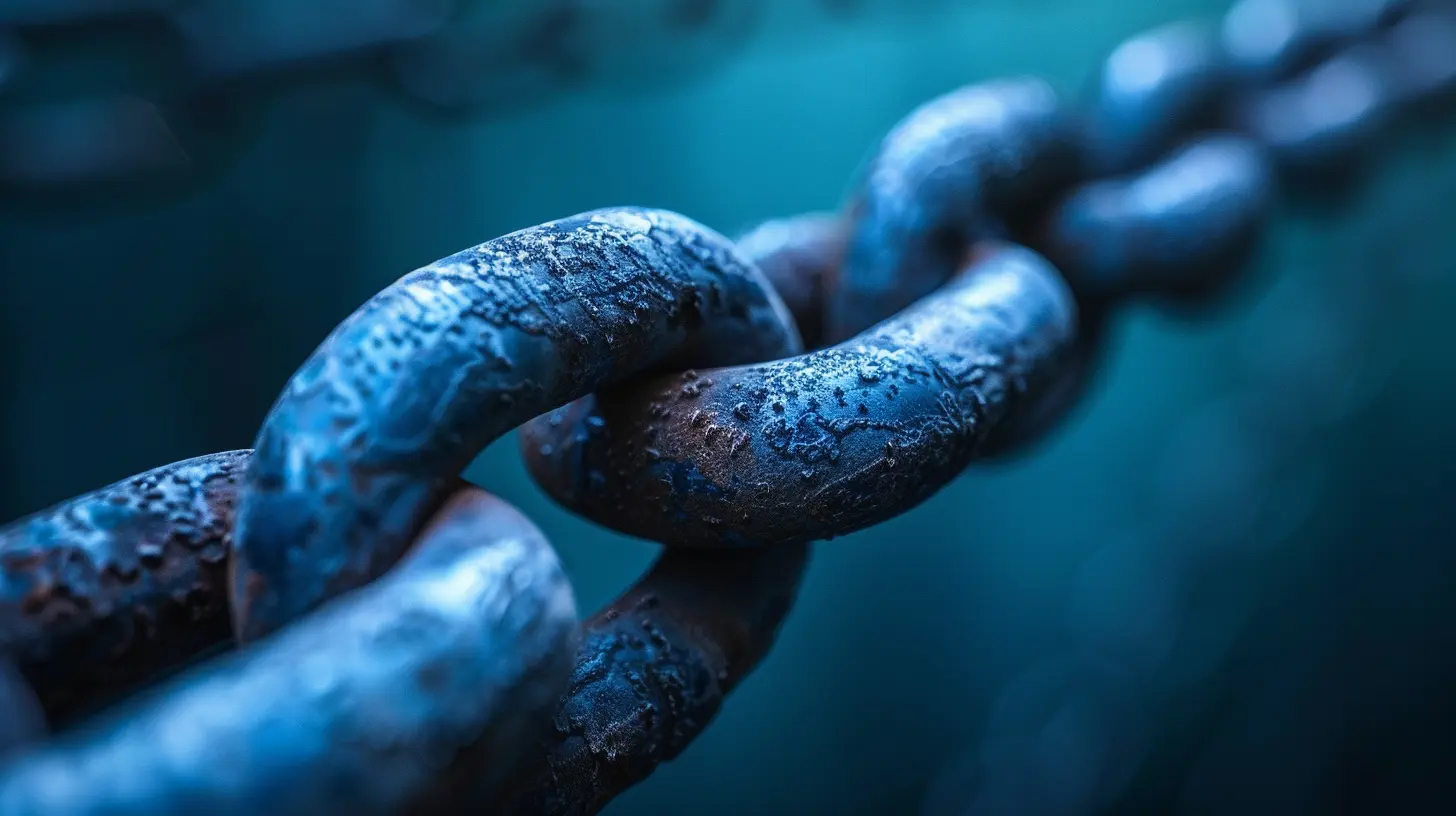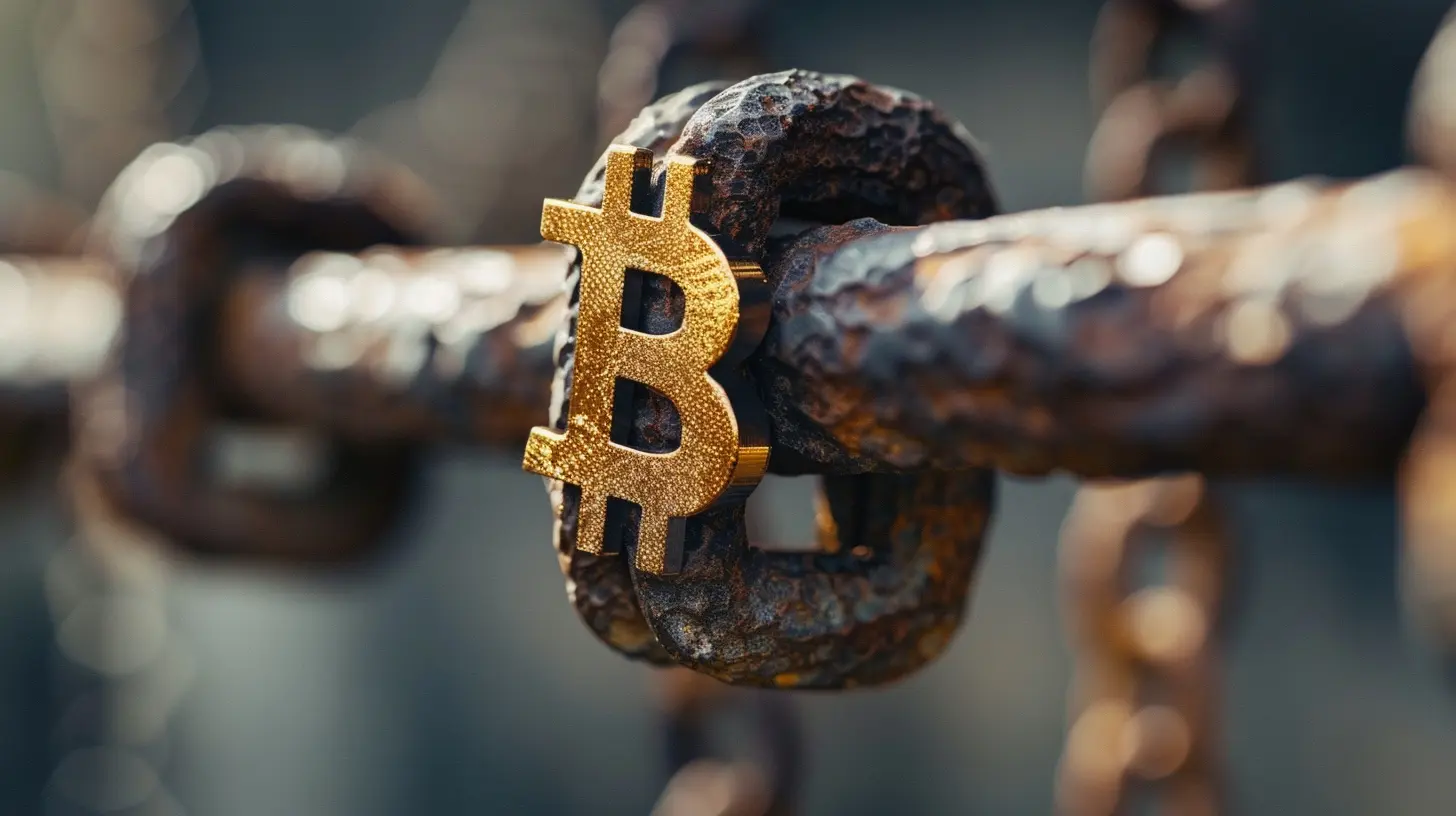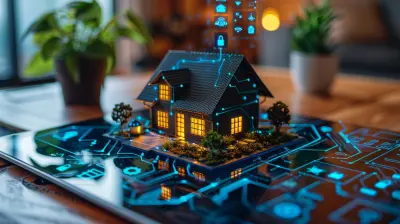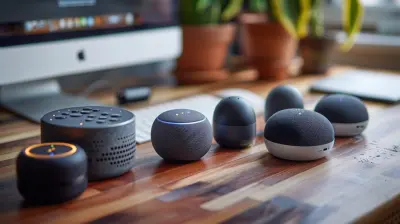Blockchain Beyond Cryptocurrency: Driving Digital Change
4 October 2025
Alright, let's face it — when most people hear the word “blockchain,” their minds go straight to Bitcoin or some guy trying to convince his parents that Dogecoin isn’t just another mistake. But here's the kicker: blockchain isn’t just about digital money. Nope. It’s the tech equivalent of a Swiss Army knife — versatile, fascinating, and criminally underappreciated outside the cryptocurrency bubble.
So, kick back, maybe grab a coffee (or a crypto latte?), and let’s dive into the wild, weird, and wonderful world of blockchain... beyond cryptocurrency.
What on Earth Is Blockchain, Anyway?
Before we start tossing blockchain into every industry like it's seasoning on avocado toast, let’s get on the same digital page.Think of blockchain as a big ol’ digital ledger — like that notebook you used to keep track of who owed you snacks in high school, but way cooler and tamper-proof. It’s decentralized, meaning no single person or organization holds all the power. Every entry (aka block) is linked to the previous one (like a chain... get it?), and once something’s written, it’s sealed tighter than your grandma’s pickles.
No erasing. No “oopsies.” Just permanent, transparent records.
Beyond Bitcoin: Say Hello To Blockchain’s Hidden Talents
Right, now that we've shoved cryptocurrency off the blockchain stage for a bit, let's roll out the red carpet for all the other ways blockchain is transforming our digital lives.1. Supply Chain Management: No More Playing "Where's That Package?"
Ever order something online only to have it vanish into a black hole of “out for delivery” updates? Enter blockchain.By recording every step a product takes — from the factory to your front door — blockchain creates a transparent trail. So, the next time your organic, gluten-free, single-origin coffee beans go rogue, you'll know exactly if they were delayed at customs or abducted by coffee-loving aliens.
And this isn’t just theoretical fluff. Companies like IBM and Walmart are already using blockchain to track food and products. That’s right — even your lettuce has a digital footprint now.
2. Healthcare: Doctor Blockchain Will See You Now
Brace yourself: the healthcare industry is notorious for being about as agile as a turtle wearing rollerblades. But blockchain could give it a much-needed caffeine jolt.Patient records scattered across multiple hospitals? With blockchain, you could access your entire medical history with a secure, unified record — and only YOU control who sees it. It's like having a digital medical vault in your pocket.
No more filling out the same form at every appointment. No more “I swear I’ve had this vaccine already.” Just better, faster, and more secure care.
3. Real Estate: Bye-Bye, Paperwork Mountain
If you’ve ever bought or sold property, you know it’s about as joyful as a dentist appointment. Mountains of paperwork, slow processing, and endless signatures (who knew your arm could cramp like that?).Blockchain swoops in like a cape-wearing superhero. By digitizing contracts and storing them securely, transactions can be faster, cheaper, and far less shady. Plus, smart contracts can even trigger payments once set conditions are met.
Basically, blockchain turns the paperwork nightmare into a smooth digital dream.
4. Voting: Blockchain for President?
Okay, let’s talk voting. Remember that thing we do during elections between memes and political arguments?In theory, blockchain could create tamper-proof digital voting systems. Think secure online votes, instant tallies, and no more “lost" ballots. Voter fraud? Good luck hacking a blockchain vote without alerting every other node.
Some countries are already giving it a whirl (looking at you, Estonia). So the next time your vote vanishes into the abyss, remember — blockchain might just be the ballot box's best friend.
5. Digital Identity: Who Are You?
Passwords. Mother’s maiden names. The name of your first hamster. It’s 2024, and our digital identities still feel like a never-ending game of "Guess That Secret.”Blockchain says, “Enough!”
Imagine a world where your identity — verified and secure — lives on a blockchain. One digital ID that you use across services, platforms, countries. You decide who gets access, how much info they see, and when they get it.
It’s kind of like being the bouncer of your own digital nightclub. No ID? No entry.
Meet Smart Contracts: The Robot Lawyers We Always Wanted
Alright, time to geek out a little. Let’s talk smart contracts.These aren’t contracts with glasses and programming degrees. They’re self-executing agreements with terms written into code.
Here’s how they work: Say you're buying a digital concert ticket. The smart contract says, "Once payment is received, send the ticket." Transaction confirmed? BAM. Ticket in your inbox. No middleman. No sketchy scalper named “Jimmy” behind a dumpster.
They're being used for everything from real estate deals to freelance payments. It’s like having a trusty robot lawyer who never sleeps or overcharges you.
Public vs. Private Blockchains: The Gossip Girls of Tech
Not all blockchains wear the same outfit. There are two main types:Public Blockchains
These are open to anyone — think Bitcoin or Ethereum. They’re decentralized, transparent, and anyone can hop on board. But with great openness comes slower speeds and more power usage (hi again, Bitcoin miners burning more electricity than small countries).Private Blockchains
These are invite-only VIP blockchains — great for businesses that want to use the tech without putting everything on display. Faster, more controlled, but slightly less “wild west.”So… public blockchains are like a town hall, and private ones are like a boardroom meeting. Both useful — depends on the party you’re hosting.
How Blockchain is Reinventing Industries (And Making Them Cooler)
Music & Entertainment: Pay the Artist, Not the Middleman
Poor artists. They create magic, then watch streaming services and shady managers pocket all the gold.Enter blockchain platforms like Audius and Royal — letting artists share directly with fans and get paid instantly. No more 6-month royalty checks. No more shouting into the void about unfair contracts.
Could blockchain finally give musicians the backstage pass to financial freedom? We say yes. Encore!
Gaming: No More “Oops, Your Sword is Gone”
In traditional games, your hard-earned loot lives on centralized servers — if the company shuts down, poof, all gone.But with blockchain-based games? Your sword, armor, pet dragon — all stored on the blockchain as NFTs. You truly own them, trade them, even sell them for real money. That’s right, gamers: your grind can finally pay off in more than just pride and sore thumbs.
Education: Diplomas That Don’t Lie
How do you know someone actually graduated from Harvard and didn’t just print a diploma from a shady website?Blockchain online credentials are the digital equivalent of a lie detector. Universities can issue degrees on the blockchain. Employers can verify them instantly. And students never have to request “official transcripts” again (why does that always take 3-5 business days?!).
Still Not Convinced? Let’s Bust Some Blockchain Myths
Let’s shut down some of those pesky blockchain rumors while we’re here.🧱 “Blockchain is just a fad!”
Kind of like the internet in the ‘90s, huh? Look how that turned out.
🧱 “It’s only useful for criminals running shadow operations!”
Sure, and email was only for Nigerian princes at one point, too.
🧱 “It’s too complicated for real-world use.”
That’s what we said about smartphones, and now even your grandma’s sending emojis.
What's Holding Blockchain Back?
Okay, it’s not all sunshine and digital daisies. Blockchain’s got its fair share of growing pains:- Scalability: Handling millions of transactions quickly? Still a work in progress.
- Energy Use: Some blockchains are energy hogs. (Looking at you, proof-of-work.)
- Regulation: Governments are still figuring out how to regulate this rebel technology.
- User Experience: Let’s be honest, some blockchain apps are clunkier than a Windows 98 computer.
But like any good superhero origin story, these are just hurdles on the path to greatness.
The Bottom Line: Blockchain’s Just Getting Started
Look, blockchain isn’t some magical unicorn that’ll fix every problem known to man. But it’s also not just Bitcoin’s nerdy sidekick.Whether it’s giving power back to creators, verifying your identity, managing supply chains, or revolutionizing healthcare — blockchain is here to shake things up. Quietly (and sometimes not so quietly), it’s transforming how we think about trust, transparency, and digital interactions.
So, the next time someone says “blockchain” and your brain screams “crypto,” remember — this tech’s just getting warmed up. And we’re only scratching the decentralized surface.
all images in this post were generated using AI tools
Category:
Digital TransformationAuthor:

Reese McQuillan
Discussion
rate this article
1 comments
Cerys McPherson
Great insights! Excited to see blockchain's impact unfold!
October 5, 2025 at 4:37 AM

Reese McQuillan
Thank you! I'm excited, too, about the transformative potential of blockchain beyond cryptocurrency.


